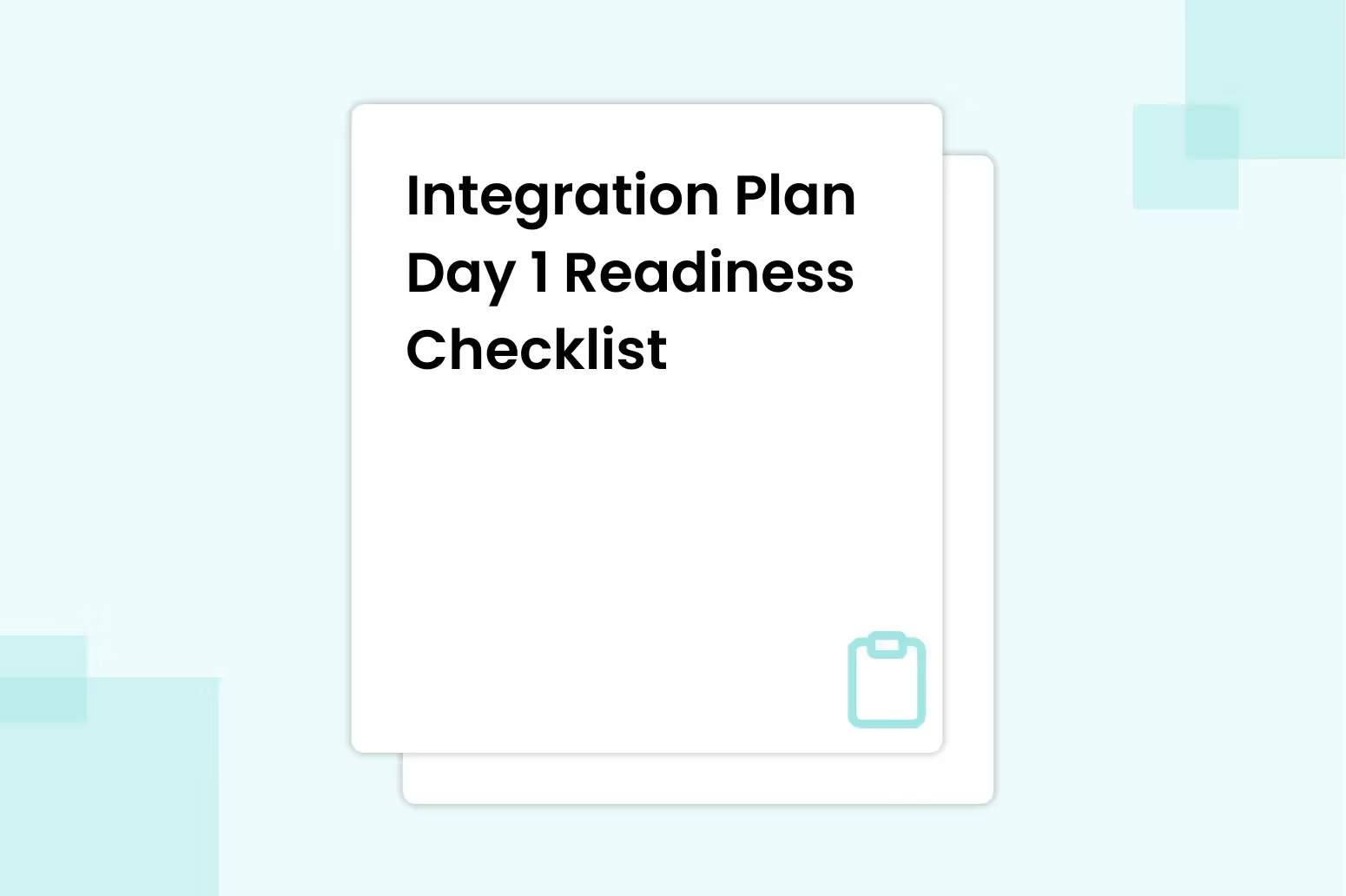Integration Plan Day 1 Readiness Checklist
This buildable checklist ensures that nothing is missed during the integration process. It includes all the typical guidelines and requirements needed for successful integration with space to customize and add tasks specific to your unique deal. Book a playbook demo to explore — schedule a call with us and we will reach out to help you get started.
- Clear Day-1 game plan
Outline every activity required for a smooth launch—from communications and systems access to org announcements and customer notifications. - Ownership and sequencing
Assign task owners, set deadlines, and identify dependencies so every team knows what needs to happen before, during, and after Day 1. - Cross-functional visibility
Unite HR, IT, finance, and operations in one workspace to track readiness progress and eliminate last-minute surprises. - Built-in reporting
Generate quick status views for leadership and integration leads, keeping progress transparent and measurable.
Review sector-specific risks with the Healthcare Due Diligence Checklist, or ensure your systems transition runs smoothly using the Information Technology Integration Checklist.





.png)
.png)
.png)
.svg)

.svg)
.avif)
